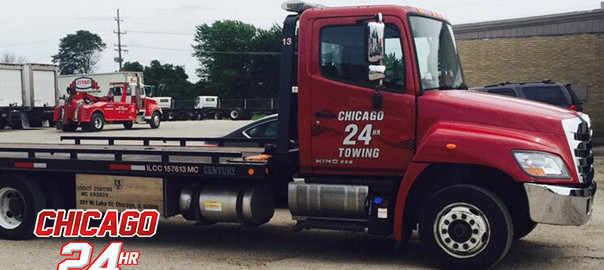In this blog entry, Towing Chicago’s expert roadside assistance team will detail the essential things for the average to know and understand about towing capacity.
Calculation of Towing Capacity
You can calculate towing capacity yourself in situations when the towing capacity of your vehicle isn’t in the vehicle manual. First, determine the vehicle’s curb weight – the weight of the vehicle when it’s filled with oil, gas, and other necessary fluids. Then determine the Gross Combination Weight Rating, which is the maximum amount of weight your vehicle can handle, which is the curb weight, the trailer weight, the cargo weight, and the weight of all passengers added. To determine towing capacity, subtract curb weight from the GCWR – if the items you want to tow are less than this number, it should work, as long as your vehicle’s brakes are properly working.
How Much Towing Capacity is Necessary
Vehicle towing capacity should always be higher than the weight of the load that you want to haul. It’s also necessary to consider the hitch weight when determining the towed load weight.
Trailer Brakes
Trailers sometimes have brakes, and sometimes they don’t. Trailers with brakes either have electrically powered brakes, or hydraulic / surge brakes. Electric brakes are connected to your vehicle’s brakes with electrical connections. When you step on the brake pedal, it senses the pressure and activates the brakes to assist with the trailer’s added load. Hydraulic / surge brakes don’t need any electricity to work, but work with air pressure created by the vehicle’s movement. Surge brakes start when the vehicle slows, making the trailer slow as well – however they have a drawback of making it harder to reverse your vehicle- a situation remedied by free-backing systems that release the trailer brakes during backups.
Towing Hitch Terminology
Towing trailers come with all sorts of hitch types to attach to the towing vehicles – with classes from 1-5. Class 1 hitches are ideal for sedans and crossovers, Class 2 hitches are ideal for some cars, crossovers, and minivans, Class 3 hitches are usually for SUVs and trucks – and have a much higher towing capacity than the other classes. Class 4 hitches are for heavy trucks and SUVs, while Class 5 hitches, the most powerful, are for large trucks and commercial vehicles.
Gross Trailer Weight is another term for how much the trailer weighs in total including the trailer’s cargo. The Tongue Weight is the weight of the trailer where it attaches to the trailer’s hitch. Keep in mind that towing capacity requirements vary in different States, while some States have zero regulation. Some States require electric brakes for heavy trailers.

